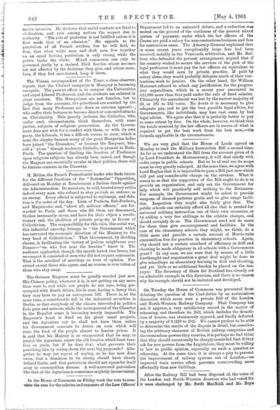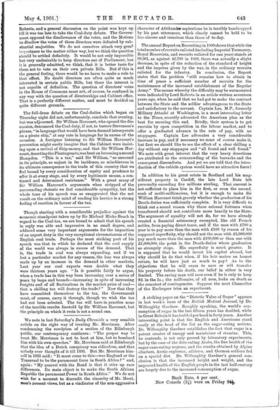After the Railway Bill had been disposed of, the votes
of the London and North-Western directors who had voted for it were challenged by Mr. Swift MacNeill and Mr. Bryn Roberts, and a general discussion on the point was kept up till it was too late to take the Coal-duty debate. The Govern- ment opposed the disallowance of the votes, and the Motions to disallow the votes of three directors were defeated by sub- stantial majorities. We do not ourselves attach very great importance to the matter either way, but we think the question should be settled definitely. It would be not only impossible but very undesirable to keep directors out of Parliament, but it is generally admitted, we think, that it is better taste for them not to vote on their own private Bills. But if this is the general feeling, there would be no harm to make a rule to that effect. No doubt directors are often quite as much interested in certain public Bills, but there the interest is not capable of definition. The question of directors' votes in the House of Commons must not, of course, be confused in any way with the question of directorships and Cabinet office. That is a perfectly different matter, and must be decided on quite different grounds.











































 Previous page
Previous page